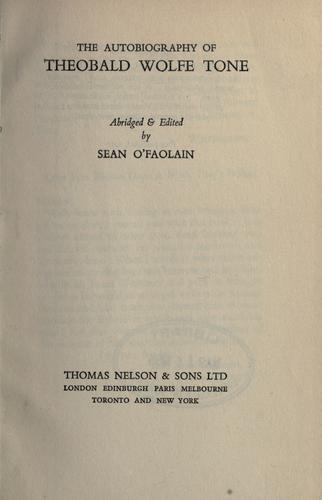
Beatha Theobald Wolfe Tone
by Theobald Wolfe Tone, R. Barry (Richard Barry) 18 O'Brien, William Theobald Wolfe Tone, Bulmer Hobson
Theobald Wolfe Tone, a Protestant revolutionary and founding father of Irish republicanism, was born in Dublin in 1763, became a lawyer, and later dedicated his life to political reform and Irish independence, founding the United Irishmen and leading a 1798 uprising.
Here's a more detailed overview of his life and adventures:
Early Life and Education:
Born in Dublin on June 20, 1763, Tone was educated at Trinity College and studied law, becoming a lawyer in 1789.
Political Activism:
He soon abandoned his legal practice to focus on political reform and Irish independence, influenced by the ideals of the French Revolution.
Founding the United Irishmen:
Tone was a key figure in the founding of the United Irishmen, a society advocating for Irish independence from British rule.
1798 Uprising:
In 1798, Tone led the United Irishmen in a major uprising, aiming for a nationalist and republican revolution in Ireland with the support of French troops.
Capture and Trial:
He was captured and put on trial in Dublin, where he defiantly proclaimed his undying hostility to England and his desire to separate the two countries.
Death:
On the day he was to be hanged, he cut his throat with a penknife and died seven days later.
Legacy:
Tone's life and writings, particularly his autobiography and journals, have been regarded as an indispensable source for the history of the 1790s and for the life of Tone himself.
Influence:
He is remembered as a Protestant revolutionary and founding father of Irish republicanism, striving to promote "the common name of Irishman".
